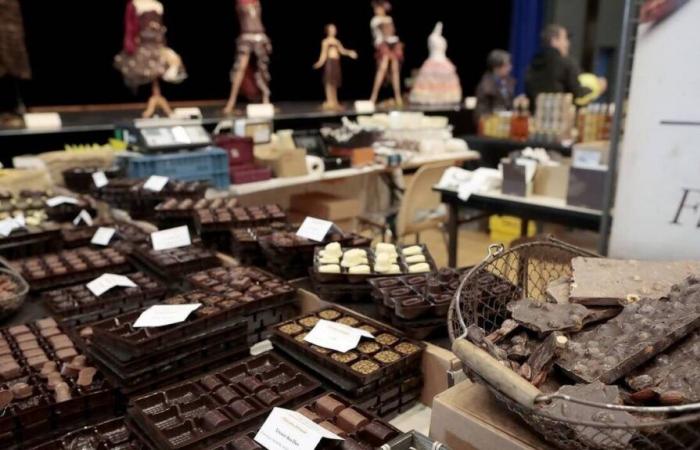It would be a big blow
: at the Salon du chocolat, standing behind his stand where small square ganaches are lined up, Maxime Henry confides that he is worried
faced with the threat of tougher taxes for chocolate makers.
If taxes have to increase tomorrow, we will have no other choice but to increase our prices. […] But it would be hard, because we've been fighting for five years to maintain our prices
says the chocolatier who took over the family business Maison Henry in 2019.
In five years, the costs of energy, sugar and, more recently, cocoa have increased significantly.
Other artisans mention a possible reduction in their margins, or portions.
Last week, deputies added in committee an amendment to the social security financing bill (PLFSS) for 2025 providing for a tax on processed food products linked to their sugar content. Its fate between now and the final vote on the PLFSS is uncertain.
In mid-October, the Montaigne Institute recommended in a report to harmonize VAT at 20% on various sweet products to finance the fight against food insecurity. Dark chocolate, taxed today at 5.5%, was in the sights.
If these taxation projects came to fruition, Sylvain Garcette, co-manager of the small business of four employees based in Tarn Ô Gourmandises d'Alice, present at the show for the second year in a row, would prefer perhaps reduce the weight of [sa] tablet
convinced that a cost that would be too high would be for its customers a barrier to purchasing
.
The buyers of the Pralus house, which has 19 stores in France and a turnover of 25 million euros, are chocolate lovers, ready to pay a certain price
analyzes Hugo Pralus, production manager of the family chocolate factory, but there is a limit
.
Pralus' increase in the price of a 75% dark chocolate bar by one euro, the first in 10 years, driven by sugar inflation, did not shake sales volumes this year. But a tax would again a direct impact on the price of the final product
deplores Hugo Pralus, who does not rule out the possibility of reducing his margin rate – currently around 15%
for a classic chocolate bar.
Artisan chocolatiers represent 5% of sales in the French chocolate market and employ 11,000 people, according to their confederation. Among them, 87% are companies with fewer than 20 employees.
Daniel Mercier, president of the association of committed chocolatiers, denounced a tax that he considers counterproductive and which risks leading consumers to lower-end products
. Even though artisans have made efforts in recent years to reduce sugar and fat content
of their products, unlike manufacturers.






